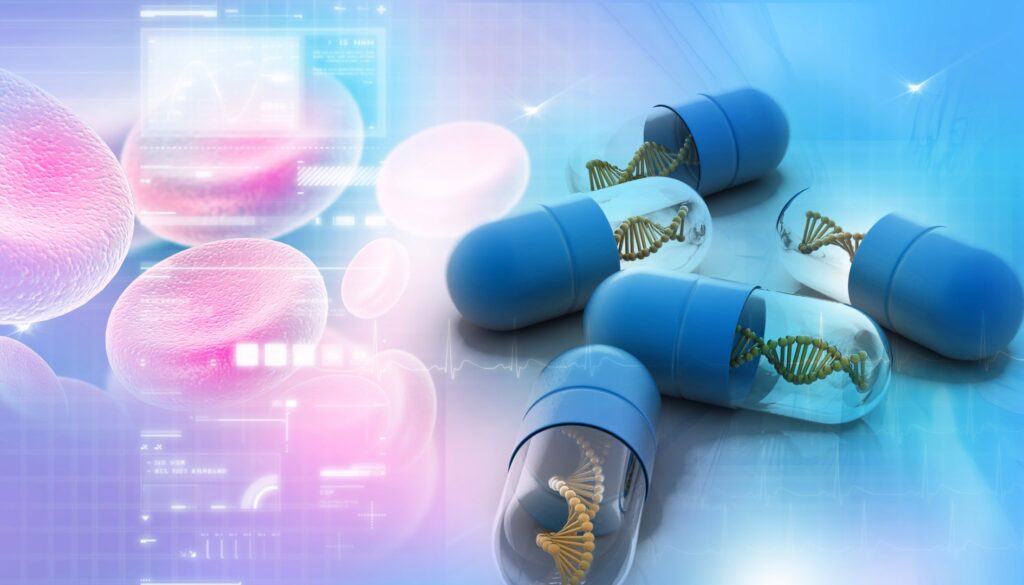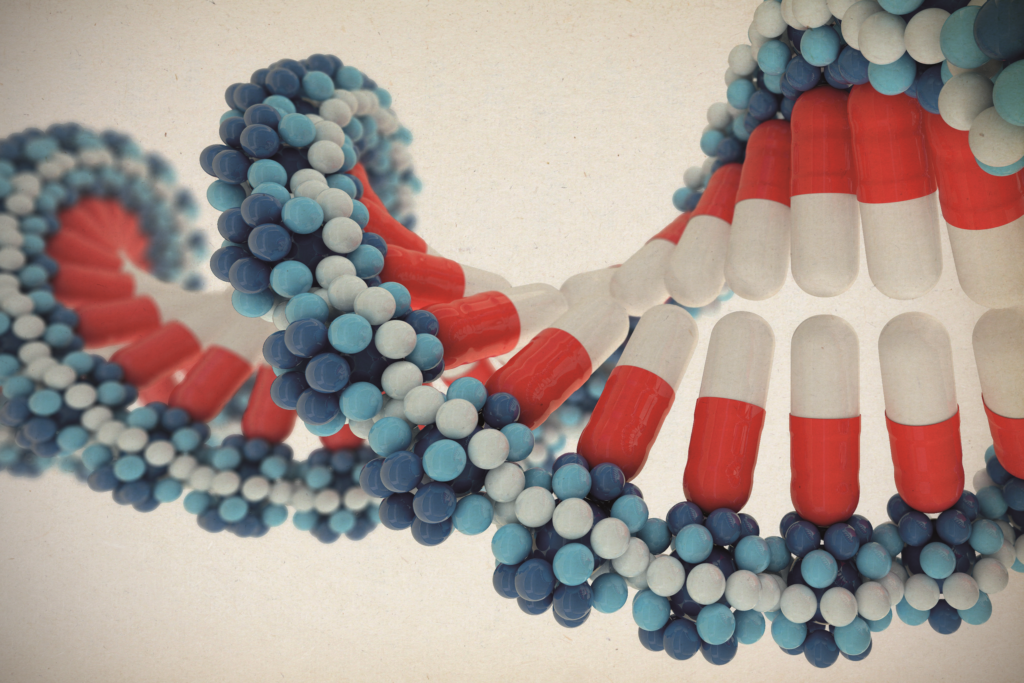Pharmacogenomics, the study of genes and how an individual’s response to drugs is affected, has the potential to revolutionize the field of medicine by enabling tailor-made therapeutics for widespread health problems like cardiovascular disorders, HIV, cancer, asthma, and others. This emerging branch combines pharmacology and genomics to understand how genetic variations can influence drug response, metabolism, distribution, and drug-target interactions.
Genetic polymorphisms can modify the expression and function of enzymes and proteins involved in drug metabolism, affecting absorption, distribution, biotransformation, and excretion, as well as the drug-target interaction. These variations can classify people as poor, extensive, or rapid/ultra-rapid metabolizers, modifying drug efficacy and safety.
Pharmacogenomics has several clinical applications including:
- Tailoring Pharmacological Therapy: By understanding the genetic variants of enzymes involved in drug pharmacokinetics or pharmacodynamics, healthcare providers can tailor pharmacological therapy to individual patients, improving drug efficacy and safety.
- Predicting Drug Response: Pharmacogenomics can predict the response to drugs used in various medical conditions, enabling personalised prescribing and improving patient outcomes.
- Minimising Adverse Drug Reactions: Genetic polymorphisms can affect the risk/benefit ratio for individual patients, and understanding these variations can help minimise adverse drug reactions and optimise drug therapy.
- Improving Drug Development: Pharmacogenomics can influence the safety and efficacy of new products during drug development, ensuring that drugs are developed with the individual patient’s genetic makeup in mind
Despite its potential, pharmacogenomics is still in its infancy, with limited use in clinical practice. However, novel approaches are under clinical trials, and in the near future, pharmacogenomics will enable the development of tailor-made therapeutics for treating widespread health problems.
What are some examples of genetic polymorphisms that can modify the expression and function of enzymes ?
Pharmacogenomics, the study of how genetic variations affect drug response, plays a crucial role in understanding the impact of genetic polymorphisms on enzymes involved in drug metabolism. Genetic polymorphisms can modify the expression and function of enzymes, leading to altered drug metabolism, which can result in varying drug responses among individuals.
One example of a gene with genetic polymorphisms that affect drug metabolism is the uridine diphosphate glucuronosyl transferase1A1 (UGT1A1) gene. UGT1A1 is a major phase II drug metabolizing enzyme that plays a significant role in the conjugation and subsequent elimination of potentially toxic xenobiotics, carcinogens, and drugs. Genetic polymorphism of the UGT1A1 gene can cause a decrease in enzyme activity, leading to interpatient differences in drug metabolism and response.
Another example is the human CYP2C8 gene, which encodes the CYP2C8 enzyme. This gene exhibits several polymorphisms, leading to decreased enzyme activity and affecting drug metabolism. For instance, the CYP2C8*2 and CYP2C8*3 variants have been associated with decreased enzyme activity, leading to altered drug metabolism and response.
Genetic polymorphisms of genes encoding drug metabolizing enzymes and drug transporters have been associated with marked inter-individual toxicity and disease predisposition. Pharmacogenetics and pharmacogenomics (PGx) is a promising discipline that predicts disease risk, selection of proper medication with regard to response and toxicity, and the impact of genetic polymorphisms on drug metabolism and response.
How can pharmacogenomics be used to tailor pharmacological therapy ?
Pharmacogenomics is a field of research that investigates how an individual’s genetic makeup influences their response to medications. By understanding the genetic variations that affect drug metabolism, distribution, and drug-target interactions, healthcare providers can tailor pharmacological therapy to individual patients. This personalised approach can improve drug efficacy and safety, reduce adverse reactions, and minimise healthcare costs.
Genetic variations can significantly impact the expression and function of enzymes involved in drug metabolism, leading to interpatient differences in drug response. For instance, genetic polymorphisms of the UGT1A1 gene can affect the metabolism of drugs such as irinotecan, leading to varying drug concentrations and efficacy. Similarly, genetic polymorphisms of the CYP2C8 gene can impact the metabolism of drugs like paclitaxel, leading to altered drug response and toxicity.
Pharmacogenomics can be used to predict drug response by creating a link between medication effectiveness and DNA. By pinpointing genetic sites linked to established drug reactions and subsequently examining individuals with unknown drug responses, researchers can identify genetic variants that affect drug responses. This information can be used to tailor drug treatments to an individual’s unique genetic profile, leading to more personalised and effective medical interventions while minimising the risk of adverse drug reactions.
Conclusion :
In conclusion, pharmacogenomics emerges as a pivotal tool in revolutionizing medicine by offering personalized treatment approaches tailored to individual genetic profiles. Understanding how genetic polymorphisms affect enzyme expression and function enables healthcare providers to optimize pharmacological therapy, predicting drug responses and minimizing adverse reactions. For instance, genetic variations in genes like UGT1A1 and CYP2C8 significantly influence drug metabolism, affecting treatment efficacy and safety. By leveraging pharmacogenomic insights, clinicians can make informed decisions, selecting medications best suited to each patient’s genetic makeup. This approach not only enhances treatment outcomes but also contributes to cost-effectiveness and patient satisfaction. While still in its early stages, pharmacogenomics holds immense potential for transforming clinical practice, with ongoing research and clinical trials paving the way for widespread implementation. As we continue to unravel the intricate relationship between genetics and drug response, the integration of pharmacogenomics into routine healthcare promises to usher in a new era of precision medicine, offering hope for improved therapeutic outcomes and patient care.
Citations:
[1] https://www.ncbi.nlm.nih.gov/pmc/articles/PMC9968102/
[2] https://pubmed.ncbi.nlm.nih.gov/28748996/
[3] https://www.intechopen.com/chapters/73392
[5] https://www.tandfonline.com/doi/full/10.1080/15376520600558333
[6] https://www.ncbi.nlm.nih.gov/pmc/articles/PMC7348959/
[7] https://www.nature.com/articles/nrcardio.2018.33




